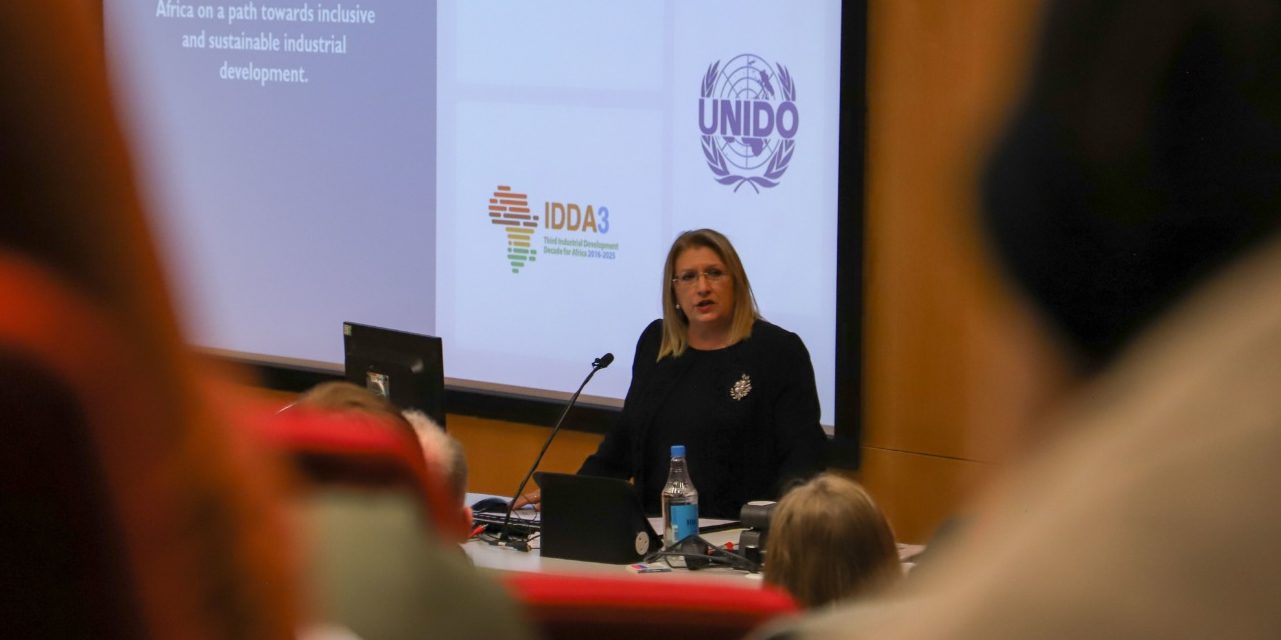The President of Malta on the importance of European-African relations
Her Excellency Marie-Louise Coleiro Preca, the President of Malta, spoke to Warwick students about ‘Europe and Africa: Twin Continents for Building Positive Peace’ on Monday 19 November, at the invitation of the University’s Politics Department.
The honorary professor spoke about what she believes Africa stands for in society today and in particular, “the importance of creating a more sustainable, respectful and mutual official relationship between the people of Europe and Africa”.
She declared that Europe “cannot afford to wait any longer” in terms of “changing their perspective” on the opportunities available in Africa that would benefit both Africa and Europe.
The President explained how her country, in the Mediterranean, and Africa are not only geographically connected but also share the same history and values through the commonwealth, making it already a vibrant and integral part of European countries.
“We should celebrate diversity: diversity brings sustainability: diversity enriches us”, said the President.
We should celebrate diversity: diversity brings sustainability: diversity enriches us
– President of Malta
She criticised that: “the voices of populist and political extremists are becoming louder”, and so universities, authorities and the media need to “work in full gear” to inform and educate people against these “dangerous ideologies”.
“Peace and prosperity can only be achieved through respectful partnerships with neighbours”, she stated as she promoted her country as being a “national bridge” between the two continents to help make stronger ties amongst them.
The President stated that “much more wealth is leaving Africa than entering it”, blaming the injustices and the “illicit practices of multinational companies” as the cause for the impoverished state of parts of Africa.
Pointing towards the $41 billion extracted from the continent each year, and associating this reality with the imperial history of Europe within Africa, she declared: “We owe it to them!”
She explained: “Africa does not need charity from Europe; Africa has all this potential for growth”.
Africa does not need charity from Europe; Africa has all this potential for growth
– President of Malta
Her Excellency pointed towards her own government’s business endeavours in Ghana. She reflected on how “keen” they were to “partner up” with the Maltese people to achieve “mutual prosperity”, which she remarked as the most “tangible way for Europe to move forward” and a “win-win situation”.
President Coleiro Preca pointed out that if “tiny little” Matla can take charge of a £40 million investment, then “imagine” what larger economies could achieve.
On education, she also pointed towards the importance of maintaining the Erasmus+ scheme, which allows students to go on study abroad programmes.
She revealed that the number of African students in the EU will sky rocket from 35,000 scholars to 105,000 by 2027, and that it is Warwick University which will play an “important” role in developing relationships for the future.
Ending her thoughts on the role of education at an international stage, she said: “I am confident that you will work to achieve strong friendships between the peoples of our respective continents.”
To end the speech, the President looked at the role of women within Africa. To her, it is imperative to see “the economic inclusion of women” in “every level of society”, and thus, called for the “empowerment” of women, which she argued was still an “unacceptable” imbalance between men and women.
By citing the fact that seven out of 10 women in Sub-Saharan Africa are engaged in the labour force, in comparison to five out of 10 in Europe, she said that “research confirms” that there is a “need for women to be full socio-economic collaborators in African countries, in order to achieve sustainable progress”.
She told Warwick students that when women are involved in the resolution of conflict, they are more likely to be long-lasting, and responded to a student’s question by saying: “The women of Rwanda brought peace to Rwanda”.
In a light-hearted tone, she stated: “If you educate a man, you educate an individual, but if you educate a woman, you educate a nation.”

Comments
Comments are closed here.